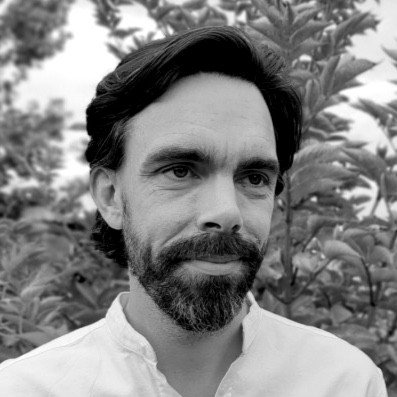Live a Spiritually Conscious Life: The Way of the Yogi - Part 2
The second limb of yoga consists of five ethical practices called the Niyamas. David McGrath, spiritual teacher and author of the book The Yogi’s Way: Living in Accord with the Yamas and Niyamas, shares how the teachings of Kriya Yoga, specifically the practices of the Niyamas offer us a practical way to live a spiritually conscious life.
David McGrath is dedicated to sharing the philosophical and psychological principles, and practices of yoga with a focus on promoting the holistic capacity of Kriya Yoga to provide insight into what it means to be human and how we can appreciate and live in tune with the fundamental nature of life. David was ordained by Mr. Roy Eugene Davis, a direct disciple of Paramahansa Yogananda, as a minister within the tradition of Kriya Yoga, in 2011. He offers instruction and guidance through one-to-one consultations, organized retreats, online programs, public seminars, workshops, and written publications. David imagines a world awakened in oneness and invites people to follow a path which will allow them to clarify their conscious awareness.
WEBSITE: www.davidmcgrath.ie
THE YOGA HOUR TEAM COMMENTS: Part 2 of this interview with David McGrath was a wonderful discussion on the niyamas following up from part 1 on the yamas. He explained how the yamas and niyamas support each other. While the yamas are practices that deal with the outside world, the niyamas are practices that disconnect with the outside world to give space to look within ourselves. Laurel and David agreed that meditation is a key practice to disengage with the ego concerns and go within to experience contentment. It is also a key part of Self-study, the second of the three pillars of Kriya Yoga. Self-study supports us in moving into the space of the witness. I was inspired by what he shared at the end of the program, wherever one is in the practice of yoga, it is extremely useful to disconnect, find silence and stillness. There you can know yourself just as a witness. This was an excellent interview and shouldn't be missed.
#yoga #niyamas #contentment #santosha #selfstudy #svadhyaya #eightlimbsofyoga #meditation #yogasutras
DR. TRUJILLO’S COMMENTS: After my discussion with David McGrath on the Yamas in Part One; the ethical principles about how we relate to others, it was useful to turn our focus within and discuss the five Niyamas: cleanliness, contentment, self-discipline, self-study, and self-surrender. As we discussed, these practices gain depth and subtlety the longer we engage with them, and practicing them deepens our understanding of the practice of the Yamas, or restraints, as well. I particularly appreciated our deeper conversation about two of the Niyamas, contentment and self-study. David’s exercise of contemplating words to decide how much they describe contentment was thought-provoking. He lists happy, balanced, still and curious as words that may describe contentment, and I appreciated our discussion that happiness and contentment are not necessarily the same thing. We both agree that meditation is one key practice that helps us with both contentment and self-study.

